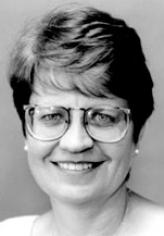Sharon E. Robinson Kurpius
Since I was a small child, I have always been a nurturer, someone who helps others. I patiently listen to their concerns, let them express their feelings, and, when appropriate, help them look at ways to feel better or behave differently. In its simplest form, I think of mentoring as a process of nurturing others. For me, it is using who I am and what I know to foster the personal and professional growth of graduate students. This is what I find most fulfilling about being a professor-the opportunity to develop meaningful individual relationships with my students with the primary goal being their academic and career success and fulfillment.As I reflected on my almost 29-year tenure as a faculty member at Arizona State University, I realized that I have had the privilege of fostering the development of 50 doctoral graduates, as well as numerous master degree graduates. Currently, I am directing the dissertations of nine students. The students who enter our doctoral program in counseling psychology are amazing. They are unbelievably bright, articulate, and curious, and invariably kind-hearted. To be able to work with them is a privilege. I have never viewed being a teacher and mentor as a task or as "a job." Instead, I believe that these students have been gifts to me. As I have tried to enrich their lives and careers, they have enriched mine both personally and professionally. Mentoring is a reciprocal process, occurring in stages.
